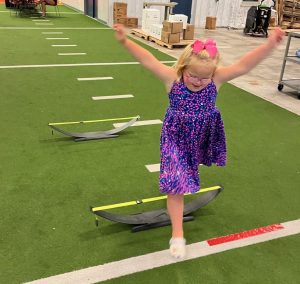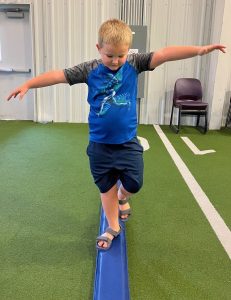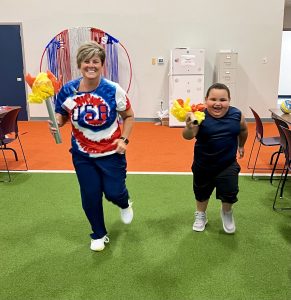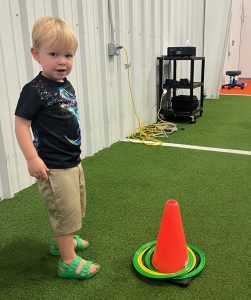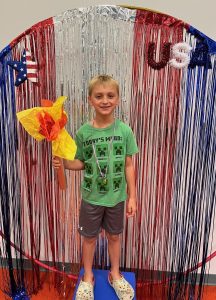Pediatric Occupational and Speech Therapy Patients Go for Gold at Memorial Therapy Center Rehab Olympics
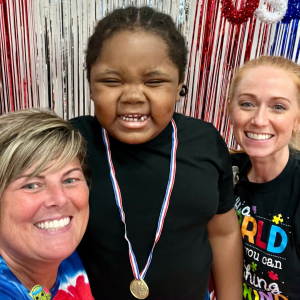
Paylee Ochs, certified occupational therapist assistant, and Elysa Tripp, speech pathologist, were brainstorming creative therapies for their pediatric patients at Memorial Therapy Center on N. 27th St. in Decatur, when the idea of a “Rehab Olympics” took hold. Immediately they sprang into action, buying supplies and researching different events.
“We both like to decorate our doors around certain themes, and the Olympics provided so many creative opportunities to encourage pediatric patients to work together to achieve their goals,” Ochs said. “We sketched out what ‘Rehab Olympics’ would look like for our patients and went to work.”
Their idea was a huge hit with the patients.
Chance Jelks, 5, has been going to pediatric occupational and speech and language therapy for the past seven months. At home, he and his grandma, Contina Jelks, have been watching the Olympics, cheering on their favorites, Simone Biles and Katie Ledecky. When “Rehab Olympics” started at pediatric therapy, he lit up.
“He loved it, and he’s learning more,” said Contina. “Usually for therapy, he is more sitting and working with things hands-on. This Olympics, he can move and do things. I just loved it and thought it was excellent for him. He was just so full of energy today. He didn’t want to stop.”
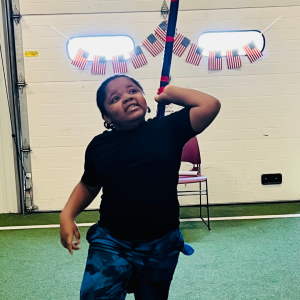
Pediatric occupational therapy uses play to improve the performance of children who need to develop fine motor skills like using small muscles in hands to write, button a shirt or similar tasks. Speech and language therapy addresses not only articulation, but also following directions, labeling objects, sequencing steps to completion, answering questions, understanding and using vocabulary and advocating for wants and needs.
“In our co-treatments, Paylee and I combine our expertise to create a comprehensive treatment plan that addresses the unique needs of each child,” Tripp said. “For example, we may incorporate sensory activities, such as swinging or jumping on a trampoline, to help regulate a child’s sensory system before engaging in speech and language exercises. This prepares the child for optimal learning and engagement.”
For occupational therapy, it is important to remember that a child’s “occupation” is to play, adds Ochs. “That’s what pediatric OT is all about. There is a function behind everything fun we do. Learning can only happen when a child is interested so I try to make my treatment sessions fun and engaging while working toward their goals. What better way to have fun than the Olympics?”
For Chance and the other pediatric patients, it provides a connection with inspiring effort on the Olympic stage and motivation to push limits here at home.
“He even tried to do a cartwheel at the Olympics at rehab,” Contina said. “It was funny. He’s never even done one before, but they have him doing everything. And it helps that he was watching it. Because he was watching the Olympics, he’s been willing to try new things.”
For more information about pediatric rehabilitation at Memorial Therapy Center on N. 27th St., visit memorial.health/27th-st-overview.
